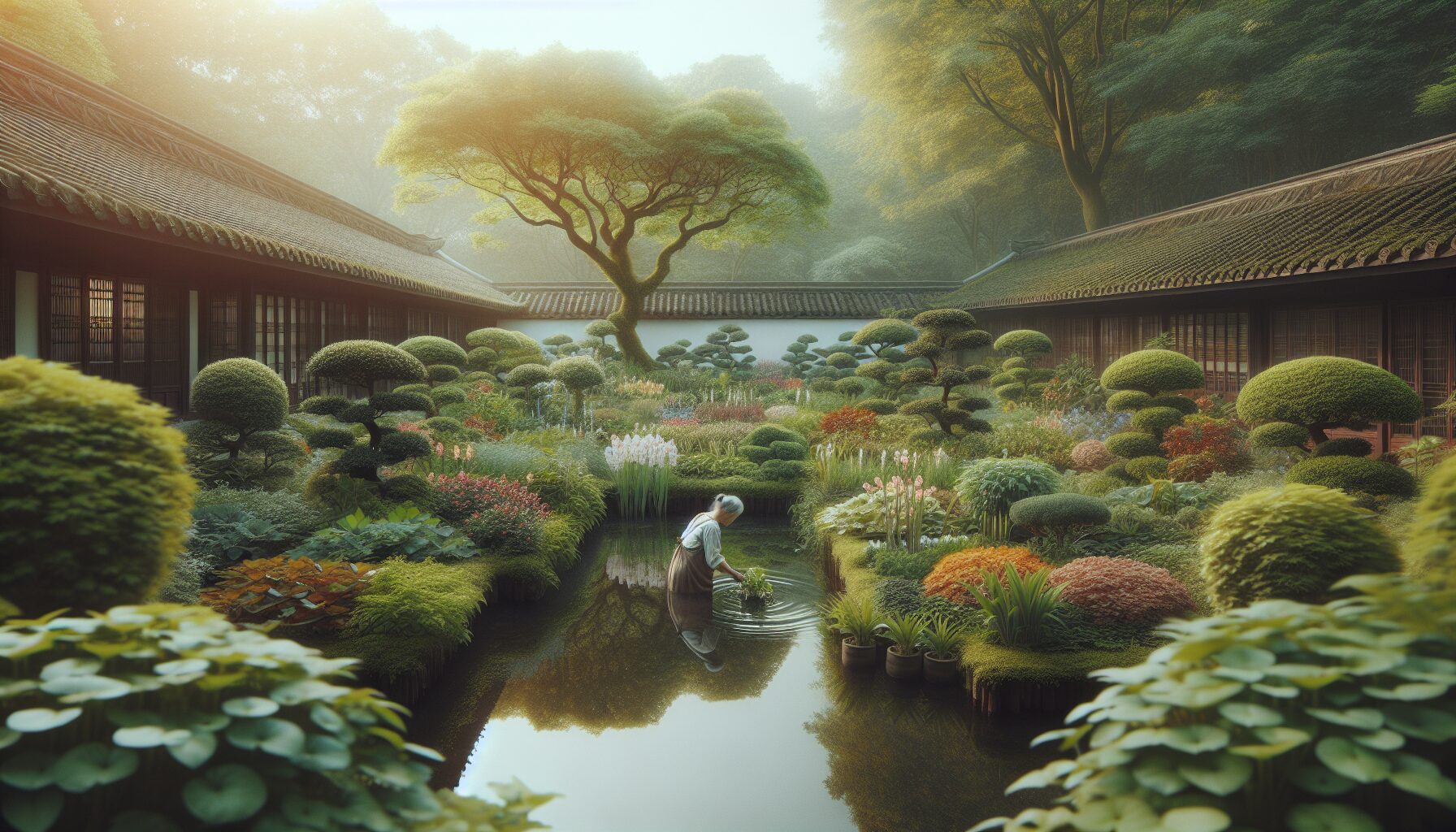In an increasingly fast-paced world, where the cacophony of modern life can often overshadow the serene whispers of nature, the act of gardening offers a sanctuary—a path to inner peace through the careful nurturing of life. The concept of an “eternal garden” is more than a mere collection of plants; it is a philosophy, an embodiment of balance, care, and mindfulness.
The Historical Roots of Gardening and Philosophy
The connection between gardening and self-reflection has been rooted in history. Ancient philosophers, from Epicurus to Confucius, have often extolled the virtues of living harmoniously with nature. Epicurus famously advocated for a simple life of modest pleasures, asserting in Letter to Menoeceus, “It is not what we have but what we enjoy that constitutes our abundance” (Epicurus). To enjoy one’s garden then, is to cultivate an appreciation for simplicity and the present moment.
The Therapeutic Power of Gardening
Modern research supports the therapeutic benefits of gardening. A study published in the Journal of Health Psychology found that gardening significantly reduces stress. Participants who engaged in gardening reported an alleviation of acute stress, reinforcing the idea that our mental states are deeply influenced by our surroundings and actions.
- Mindfulness and Presence: Gardening requires a deep focus on the task at hand, be it planting seeds or watering plants. This focus on present tasks fosters mindfulness, encouraging individuals to live in the moment.
- Connection to Nature: By cultivating a garden, one engages directly with the earth, fostering a profound connection to the natural world. This connection can instill a sense of belonging and peace.
- Sense of Accomplishment: Watching plants grow from seedlings to full bloom provides a tangible sense of achievement, which can enhance self-worth and satisfaction.
The Garden as a Reflection of the Self
In caring for a garden, one learns patience, resilience, and attentiveness. These virtues are not only critical for the health of the garden but also essential for personal growth. The garden becomes a mirror of one’s internal state—thriving in conditions of care and withering under neglect. As the gardener tends to their plot of earth, they are reminded of the natural cycles of life, death, renewal, and the resilience of life.
“The mind is like a fertile garden; it produces what you plant in it. You choose what you feed and pour water on.” — Buddha
Practical Steps to Cultivate Your Eternal Garden
Nurturing an eternal garden is both a physical and spiritual endeavor. Here are practical steps to embarking on this journey:
- Start Small: Begin with a few pots or a small plot. Define the space you wish to cultivate and start with easy-to-grow plants like herbs, which offer aromatic and culinary benefits for added enjoyment.
- Be Consistent: Regular maintenance is key. Set aside dedicated time each day—or each week—to tend to your garden, providing consistent care and attention.
- Observe and Adapt: Gardening is an exercise in adaptability. Watch how your plants respond to various conditions and adjust your practices accordingly. This dynamic learning process encourages flexibility and critical thinking.
- Embrace the Cycle: Accept the natural life cycle of plants. Embrace the changes with equanimity, recognizing that each phase offers a lesson in resilience and acceptance.
The Broader Implications of Gardening
Gardening cultivates peace not only within the individual but spreads its influence outward, fostering community and environmental stewardship. Community gardens serve as common grounds for diverse individuals to unite over a shared passion, promoting social connections and collective well-being.
Moreover, as people become more attuned to the cycles of nature, they often develop a greater sense of responsibility toward ecological preservation. In nurturing a garden, individuals may also find motivation to advocate for larger environmental initiatives, contributing to broader ecological well-being.
Conclusion
The eternal garden is a timeless metaphor for cultivating inner peace through the physical act of gardening. It encourages mindfulness, patience, and care, reflecting the harmonious balance between the inner self and outer environment. In a world marked by haste and chaos, tending to a garden offers a reminder of nature’s enduring wisdom and the peace that can be found within.
To embark on the journey of creating your eternal garden is to engage in a meditative practice that heals the mind and nurtures the spirit—a true oasis in the desert of modern life’s demands.
